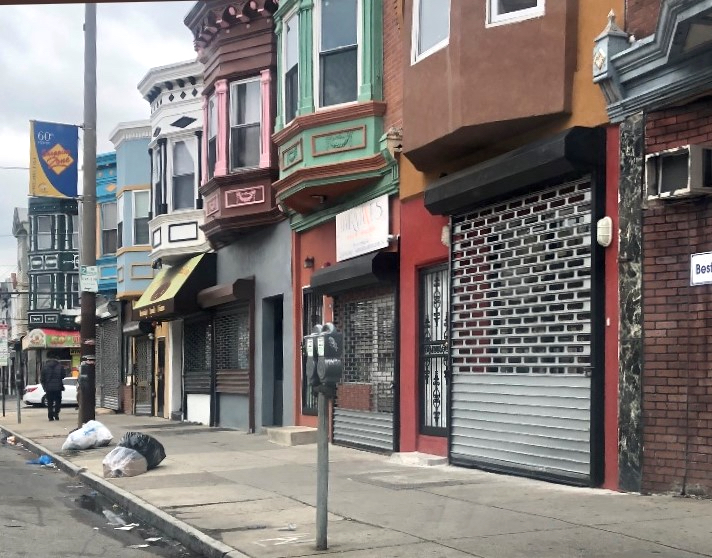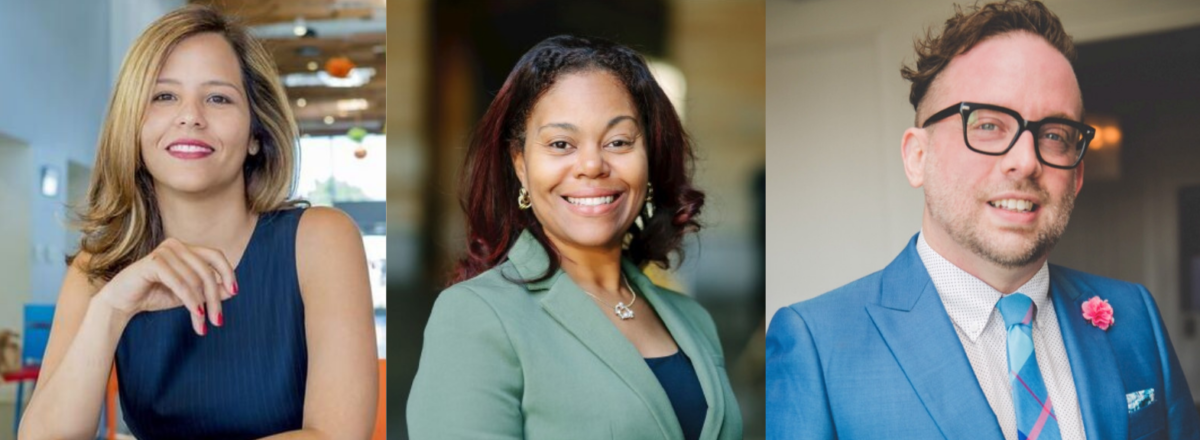Declining foot traffic to storefronts. Limited access to capital. Mental anguish amid racial injustice.
For these reasons and more, the pandemic has been an especially challenging time for BIPOC business owners and others of diverse backgrounds, in Philadelphia and beyond. Black-owned businesses, in particular, closed at a faster rate in 2020 than white-owned businesses. But over the past 18-plus months, leaders from local minority-focused Chambers of Commerce have supported them via education, marketing and funding.
With the newly formed Diverse Chambers Coalition, they want to give those business owners an even better chance at success by sharing resources and advocating for their collective needs, speaking “with a united voice on issues where members unanimously align,” per a press announcement.
The coalition is made up of Greater Philadelphia Hispanic Chamber of Commerce (GPHCC) President and CEO Jennifer Rodríguez, African American Chamber of Commerce of PA, NJ & DE (AACC) President and CEO Regina Hairston, Independence Business Alliance (aka the city’s LGBTQ Chamber) Executive Director Zach Wilcha and Asian American Chamber of Commerce of Greater Philadelphia Board President Narasimha Shenoy.
“For the past year and a half going through the pandemic, one lesson learned is that small and micro diverse business issues were not understood and not well served. There is a strong need to focus on these businesses to help them provide jobs to contribute to the local and regional economy,” Shenoy said in a statement. “Diverse chambers are organized to meet unique needs of its businesses. The Diverse Chambers Coalition will collectively advocate to better serve our diverse small and micro businesses to grow the local and regional economy.”
Technical.ly heard from Rodríguez, Hairston and Wilcha about the morale of their constituents over the last year and the opportunities and challenges ahead in 2022; we have also reached out to Shenoy and will update this story if we hear back. Here’s what they said:
How have the constituents you work with fared in 2021 so far compared to 2020?
Rodríguez: More than a year into the pandemic, Latino entrepreneurs have demonstrated their resilience. While highly impacted by the pandemic, our businesses have largely adapted and survived with few reported closures.
With the support of our partners, GPHCC was able to provide $45,000 in microgrants and help secure over $1.2 million in PPP [Paycheck Protection Program] loans for our members. Furthermore, 13 businesses that participated in our Accelerate Latinx program not only retained 66 jobs but created an additional 20 during the pandemic.
Hairston: During the early weeks and months of the pandemic, Black-owned businesses were trying to weather the storm of shutdowns, profit losses, and business closures that made it difficult to maintain a successful business. Black-owned businesses found themselves looking to the government, CDFIs, and more for aid. At AACC, we stepped in as that link to connect them with the necessary resources.
Here in 2021, we are beginning to see signs that recovery is possible. Speaking for the Chamber, we’ve refocused on creating lasting partnerships with regional corporations so that our Chamber members are connected to resources to help them rebuild and recover.
Wilcha: Compared to 2020, our members whose businesses have survived have been adapting to the challenges of 2021, whether that’s recovery or a pivot of their entire business. There were so many government-led initiatives, like PPP, [Economic Injury Disaster Loans], or Philadelphia City grants/loans, which bridged necessary gaps for our businesses, and now folks are finding ways to do business in a new world.
The panic of 2020 has worn off some, but the recovery process continues and will extend far beyond 2022. For example, many members of our community own businesses in or are employed in the tourism and hospitality sector, and that sector was disproportionately adversely affected by the pandemic.

What big challenges or opportunities are you seeing for constituents in 2022?
Rodríguez: Businesses have developed new capabilities, especially in the technology space. Many have developed strong social media presence, including new channels to sell products and services. The challenge, and the opportunity, is to help them scale up to reach and surpass $1 million in revenue, and to introduce them to the contract opportunities with government, corporations, and institutions that will help them meet that goal. GPHCC is ready to do that through our Accelerate Latinx scaling program and through our Build Latino capacity building program for businesses in the construction industry.
Hairston: We’re certainly are not out of the woods yet. The pandemic and its effects are still looming on businesses’ bottom line and it’s apparent, but we’re making sure that opportunities for Black business owners in the region are plentiful. For the African American Chamber of Commerce of PA, NJ & DE — our time will be devoted to expanding our programs that assist businesses in getting back on their feet and building a strong network of Black-owned businesses where connections can be fostered.
Wilcha: The main that challenges exist for our business members are that much of the help that was available for the past year, in grants and loans, will be slowly disappearing. Additionally, there are still so many unknowns ahead, as the pandemic persists. We’re lucky to live in a region that has embraced the effectiveness of vaccines and masks, but our businesses are still operating under extreme caution with no end to the pandemic in sight.
I spoke to several businesses who have been using this historical moment as an opportunity to reset. Rather than just reopening their business to what it was before the pandemic, they are positioning their reopening as the “2.0 version” of their business. Many are also taking the opportunity to create new business plans. Prices, customer trends, and other key indicators are completely different than they were 20 months ago. Businesses are taking seriously the fact that now they must plan to do business in the world we presently live in, not the world we wish existed.







